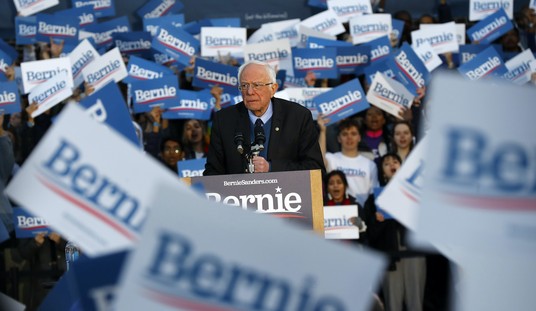Many comparisons are made between the situation of 2011 and the situation of the late 1970s during the Carter administration, when Americans were figuring out what a mistake it had been to elect a left-wing grammar-correcting bureaucracy zealot to the Oval Office.
But there is a big difference between the two situations, and it’s not that today there is no Soviet Union. The difference is the character of the American people. I’m not even talking about things like expectations for marriage and father-mother households: I’m talking about our expectations of government and society – or, as we used to put it, man and the state. We no longer have the character and expectations of a free people, in the way Americans once did.
Before the ‘70s, Americans had not, by and large, bought into the idea of government as an agent of transformation for society or the planet. In 2011, the evidence is that we have. We think of government as children think of their parents: as a source not just of food and shelter but of permissions, of ideas, of counseling and hope and the outlines of what is possible. As parents transform their children from puling incompetents into people ready to assume a place in society, so government is now expected to both nurture and transform.
Although many warned at the time that government was getting too big and the American character was being undermined, there was still, in the 1970s, a much greater sense of self-reliance than there is now. In comparison with 2011, there was almost nothing you did in life – for most Americans – that was a matter of “what the government would let you do.” Constraints and restraints imposed by government were comparatively rare. In most cases, they were crude and laughable, like Nixon’s wage and price controls in the early 1970s, or the regulation of air travel that prevented competition and kept ticket prices high (and discouraged the less well-off from availing themselves of the airlines, thus producing the wonderfully quiet, roomy, peaceful air-travel environment remembered so nostalgically by today’s senior citizens).
People in the 1970s could tell the difference between being regulated and not being regulated. Regulation was overt. It made the news. Congress shouted and carried on about it – because back then, it had to be introduced and adjusted by Congress, rather than occurring as the result of bureaucratic processes in federal agencies that no more than 1000 average citizens in the entire country could locate on a map.
In 2011, Americans have no idea the extent to which they are regulated, and how much regulation costs them. Regulation is the “new normal.” People who can’t imagine dismantling the EPA, or OSHA, or the CPSC or the EEOC, because they vaguely fear that a bottomless pit with dragons lurks beyond the horizon of ever-increasing regulation, are not free citizens who have the mental liberty to make real choices. Not understanding how much they are regulated, they also have no idea that a “normal” without today’s level of regulation might just be a great normal in which to live.
In the 1970s, Americans were still accustomed to greater freedom of action, and fought each new clamp on it strenuously. In the 2010s, people don’t realize that the regulatory environment they regard as normal is what is narrowing their future by the day – and they have been trained to fear the very idea of life without incessant regulation. They have been taught that the alternative to each and every form of regulation is destruction, despair, ruin, chaos, poverty, ignorance, injustice, disease, death, and the triumph of mean-hearted rich people. As far as they know, there are two options, and only two: regulation, or an endless series of catastrophes. There is no such condition as a satisfactory, unregulated outcome. The unregulated life, to update Socrates, is not worth living.
A lot of Americans in 2011 would not elect Reagan, as their forebears did in 1980, because they don’t have the capacity to appreciate the level of genuine freedom voters wanted to return to when they put Reagan in office. The truth is that when government has become – with our blessing – big enough to threaten Americans with federal prosecution if they resell a drop-side crib at a garage sale,* Americans have yielded up their important liberties, and are no longer eligible to exercise them.
I think Rick Perry looks like a pretty good guy. If he’s the GOP candidate, I’ll vote for him. But it’s important to understand that he’s more of a George W. Bush kind of good guy than a Ronald Reagan-type good guy. He’s for business, for the middle class, for keeping taxes low and letting the people prosper. But he doesn’t have a visceral antipathy to regulation and the enlargement of the discretionary scope of government.
It may be no accident that he and Bush have both been governor of Texas: Texas, like much of “Red” America, has gotten to 2011 without having the reckoning with regulation that other states are having. With its lighter regulatory load, Texas has continued to outgrow its regulatory environment, as California and New York have not. Texas has been flying straight and level, rather than facing a painful stall-out – and what that means is that Texas’ leading politicians have not had to do the kind of serious rethinking of the trajectory of government that many among Tea Partiers and other right-wingers believe we need.
Don’t mistake me: I’m a big fan of Texas. The Blue states (and most of the Red ones, for that matter) should be so lucky. But Texas is an example of the benefits of not letting things get too bad. The important factor in Texas, moreover, is Texans. What much of the country needs, however – not being populated by Texans – is a way back from things that have already gotten too bad. It needs reversals more serious and fundamental than the gentle, marginal corrections to government that succeed with a more self-reliant citizenry.
The Reagan-era changes, important as they were, have been dwarfed by an unfettered explosion of government since he left office; what’s needed now is a reversal of the trajectory of government even more significant than that of Reagan’s legacy. I’m not sure enough Americans are ready for that. Rick Perry may, however, be just the man to hold the line against a worsening of our federal government’s incontinent profile, while the people get themselves sorted out.
He would unquestionably be better than Obama – and one thing I particularly like about him is that he seems to appreciate the scope of what he’s proposing to get into. The next president’s term is going to be ugly; it’s unlikely to redound to the credit of anyone’s brilliant scheme of government-tweaking and economy-boosting. Perry seems to have his head screwed on straight in the sense of not believing in more than government can actually do. My main quibble would be that he hasn’t internalized the inherent danger to liberty posed by regulatory prophylaxis.
He may, with time, shift toward a more transformational political concept than he appears to have now. Until a critical mass of the people does, the sentiments of individual politicians will have limited impact. Perry as he is may not be the “Ronald Reagan” America needs today – but he may be as much of one as we are ready for.
* Actual advice from “Mom Houston,” a Houston Chronicle blog:
I want to throw out my old [drop-side] crib but am worried somebody may take it. What should I do?
Take your old crib apart and throw it out in pieces — one side one week, one side another week — so that nobody can rebuild it from the parts left on the curb or in the trash bin.
J.E. Dyer’s articles have appeared at The Green Room, Commentary’s “contentions,” Patheos, The Weekly Standard online, and her own blog, The Optimistic Conservative.
This post was promoted from GreenRoom to HotAir.com.
To see the comments on the original post, look here.








Join the conversation as a VIP Member